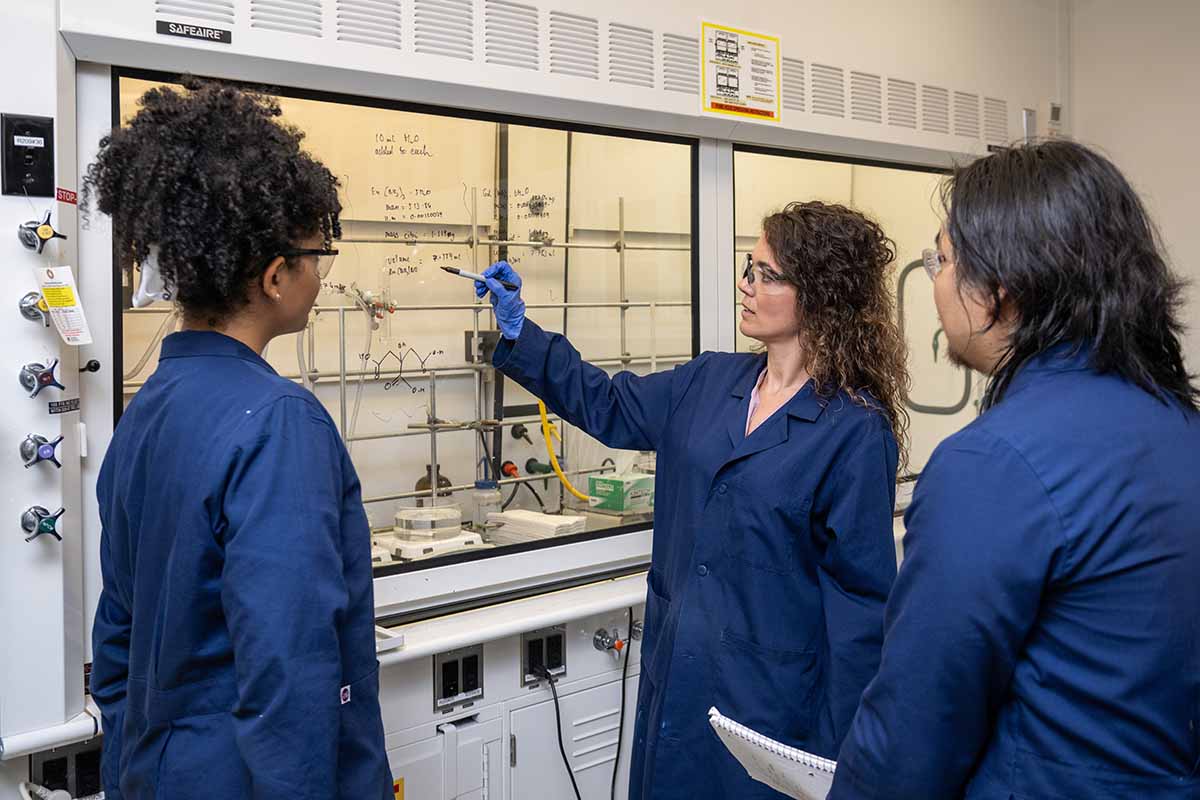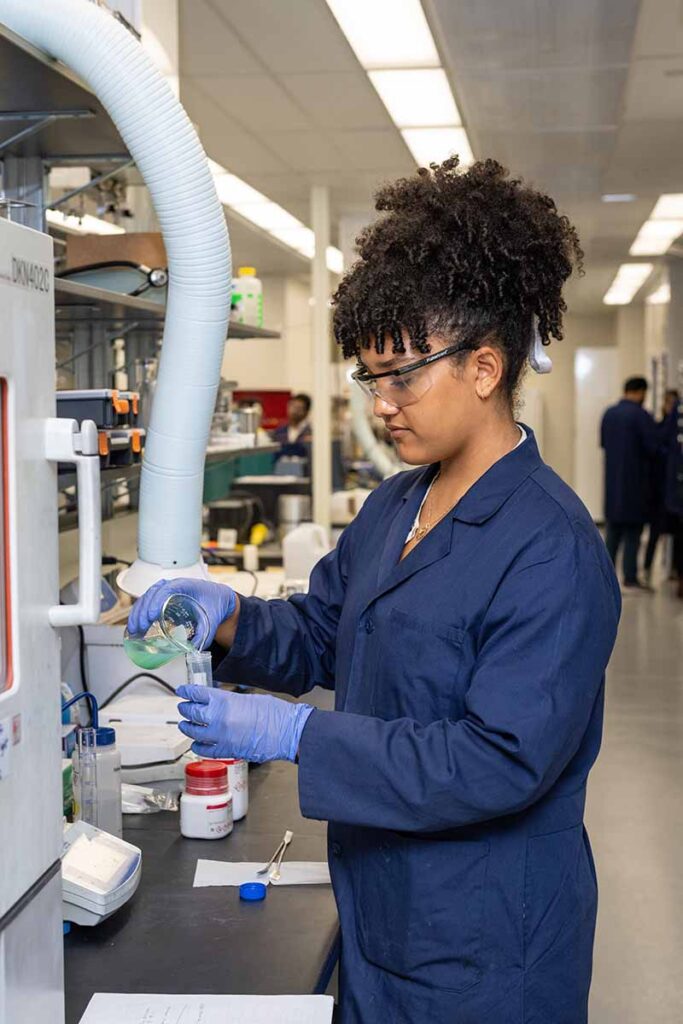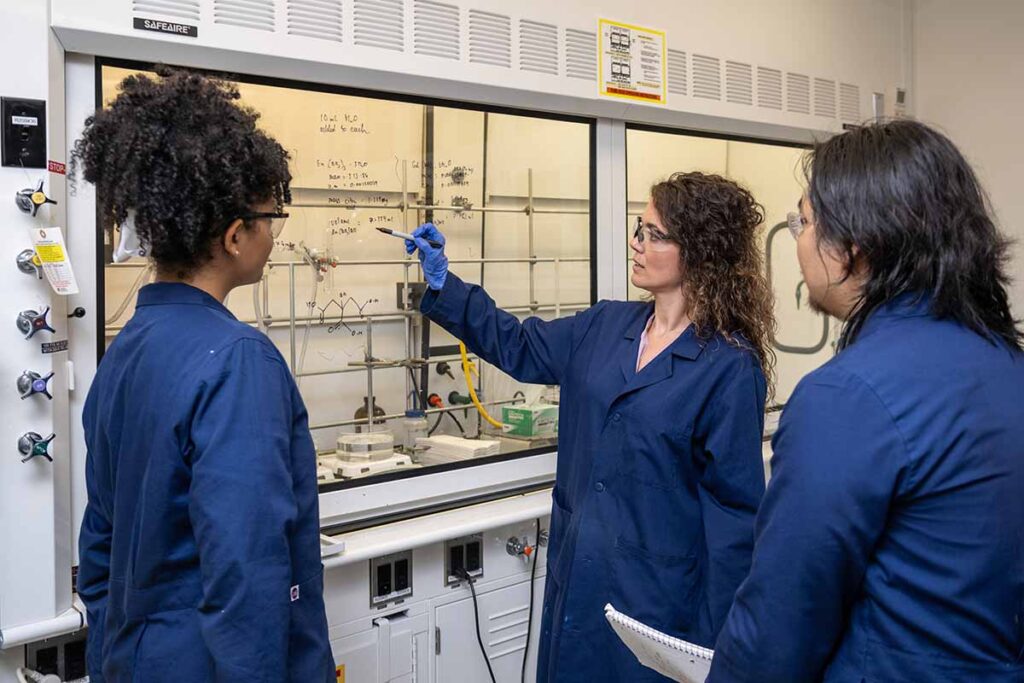
Undergraduate student explores graduate research opportunities at Michigan Chemical Engineering
The Nikolla Lab hosted an undergraduate student from Roosevelt University in Chicago as part of U-M’s Summer Research Opportunity Program.

The Nikolla Lab hosted an undergraduate student from Roosevelt University in Chicago as part of U-M’s Summer Research Opportunity Program.
Isabela Tatem, an undergraduate student from Roosevelt University in Chicago spent this summer conducting research in Chemical Engineering Professor Eranda Nikolla’s lab as part of U-M’s Summer Research Opportunity Program (SROP).
SROP aims to expand access and opportunities for diverse students and facilitates their preparation for doctoral studies at U-M. With an emphasis on diversity, SROP’s mission is to elevate the voices of students who have been historically underrepresented in their fields, fostering an inclusive and equitable academic community.
“SROP is a great program that provides students from diverse backgrounds the opportunity to learn about research and prepares them for doctoral studies at U-M,” Nikolla said. “It was a pleasure having Ms. Tatem as a researcher in my lab. I really enjoyed watching her grow as a researcher and learn about the synthesis of oxide catalysts for hydrogen generation from water.”
The Nikolla Lab’s research focuses on issues related to thermocatalysis and electrocatalysis for energy and chemical conversion and storage. The lab combines state-of-the-art synthesis techniques, characterization and quantum density functional theory chemical calculations to minimize environmental impact and reduce dependence on scarce fossil fuel reserves.

Within the Nikolla Lab, Tatem held a crucial role as an undergraduate researcher, collaborating closely with graduate student Hyungdon (Don) Joo. Throughout the 12-week program, Tatem’s work focused on a controlled sol-gel synthesis of non-stoichiometric mixed metal oxide electrocatalysts for water splitting. The ongoing project ultimately aims to manipulate variables like temperature and pH to test for impurities, advancing the understanding of catalytic processes vital for renewable energy applications.
“I am so grateful to have been able to work in this lab and work on research that piques my interest,” Tatem said. “Being in an environment with other students that are dedicated to research makes learning so exciting.”
Tatem’s time in the Nikolla Lab has helped deepen her understanding of chemical engineering principles and emphasized the interconnectedness between her biochemistry background and the broader realm of chemical engineering.
“Coming from a biochemistry background there are a lot of crossovers when it comes to chemical engineering,” Tatem said. “Being able to tie in my previous understanding and chemical engineering principles and concepts has allowed me to fill in gaps.”

As she considers a future in chemical engineering and graduate studies at the University of Michigan, Tatem’s experience in the Nikolla Lab has instilled a sense of comfort and confidence within the laboratory setting, equipping her with essential skills to navigate the path towards graduate school.
This fall, Tatem will return to Roosevelt University to complete her biochemistry degree. The skills and knowledge gained from her experience in the Nikolla Lab will serve as invaluable assets in both the classroom and the laboratory moving forward.
“This experience has greatly improved my knowledge and will help me as I progress in my career,” Tatem said. “I’ve gotten more comfortable in the lab and feel excited to apply for graduate school.”